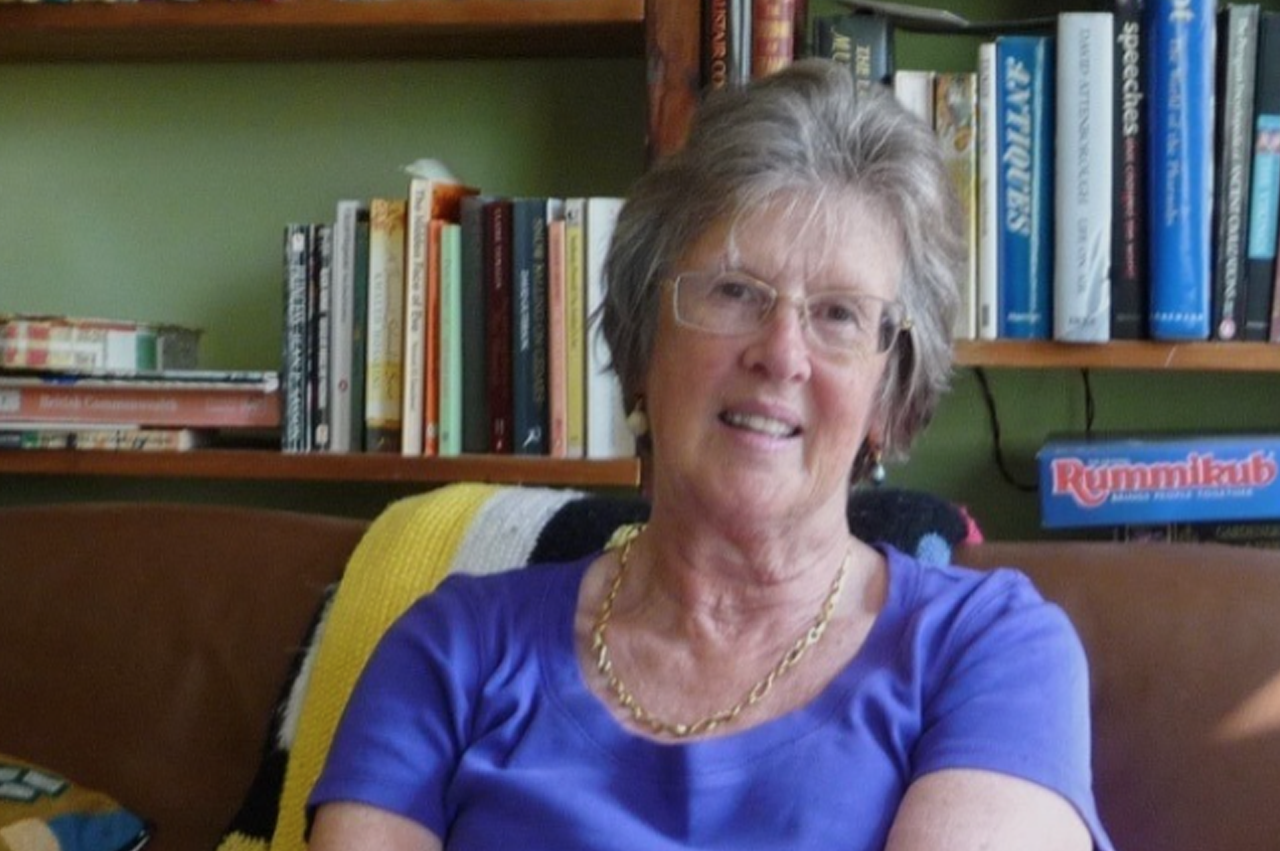
Beverley Lawrence Beech – Birth Activist
Beverley Lawrence Beech, birth activist, author, researcher and campaigner for human rights in childbirth across the world, died on February 25th and all birthing people are the poorer now that her determined and uncowed voice will no longer be heard.
Beverley started her personal campaign to make birth better in this country and across the world in 1976 following the birth of her second child. She was a lay adviser to the National Perinatal Epidemiology Unit at Oxford for six years, a lay member of the Professional Conduct Committee of the Nursing and Midwifery Council (NMC) and a member of the Midwifery Committee of the NMC. She was also a lay member of the Royal College of Obstetricians and Gynaecologists Maternity Forum, a founder member of CERES (Consumers for Ethics in Research) and Chair and Honorary Chair of the Association for Improvements in the Maternity Services (AIMS). With her trademark outspoken and hugely well-informed determination, she lectured nationally and internationally on consumer issues in maternity care and the medicalisation of birth.
I remember vividly attending a home birth conference in the 1980s at which Beverley stood up and attacked (I think ‘attacked’ has to be the right word) the eminent obstetrician who had presented a case for 100% hospital confinement. She quoted from a series of academic papers challenging the safety of hospital birth and concluded by asking the speaker whether he had ever spoken to any woman about the kind of birth she would like to have. She transformed a very meek audience who had listened quietly to the speaker into a sea of hands waving to attract the Chair’s attention and ask their own militant questions. I was new to childbirth activism at the time and was awestruck by Beverley’s courage and ability to marshal facts and arguments under considerable pressure from an embarrassed Chair who obviously wanted her to sit down and be quiet.
Being quiet was never Beverley’s way. About a decade after this conference, I invited her to speak at a small conference I had arranged in Birmingham. I’d also asked Marsden Wagner, then Regional Chair of WHO Europe, to attend and I took them both out for a meal the evening before. The two of them shared exactly the same views on the way in which women were treated across the world during childbirth but this did not stop them yelling at each other in their excitement for several hours during which all the other diners in the restaurant quietly collected their coats and left, mostly in haste!
An example of her headlong assault on what she saw as abuses of women’s right to determine for themselves the best way to have their babies can be found in a letter she wrote to the Independent newspaper in 1994 as part of a debate on GP provision of maternity care:
Sir:
It is not only the chronically sick, old and mentally ill who are removed from doctors' lists. One of the commoner reasons for whole families being 'struck off' is when a pregnant woman asks for a home birth. This happens even when she arranges for midwifery care and the GP is unlikely to be involved, since emergencies will be referred to hospital.
Extra payments for ante- and postnatal care are a major source of GP postnatal income. Why are taxpayers buying expensive maternity care from doctors who are so terrified of being called to a birth that they would rather remove long-standing patients from their lists? Antenatal care from people who cannot cope with birth is potentially unsafe.
Beverley wrote many books but the one which had the greatest impact on me, and countless other women, was ‘Am I allowed?’ published in 2003 by AIMS. In essence, the book challenged women to stop seeking permission from midwives and doctors to do what they wanted to do in childbirth and to stand up for themselves, state their wishes, and engage in a conversation of equals about the pros and cons of their choices. As an antenatal teacher of 18 years standing in 2003, I do not know how many times I had been asked by parents in classes whether they would be ‘allowed’ to have a home birth, use the birth pool, refuse continuous electronic fetal monitoring, move the bed, place the mattress on the floor, eat and drink during labour, etc etc. This was a fantastic book to refer people to and it was constantly signed out of my class library for many years.
It would probably be fair to say that Beverley frightened a lot of people – and not just those she opposed but also those who were on the same side as herself. However, her fearlessness and absolute integrity, her determination and total commitment to enabling women to take charge of their own childbearing journey can only be described as magnificent. She will be sorely missed.
Mary Nolan
Emerita Professor of Perinatal Education, University of Worcester
Founding Editor, International Journal of Birth and Parenting Education
